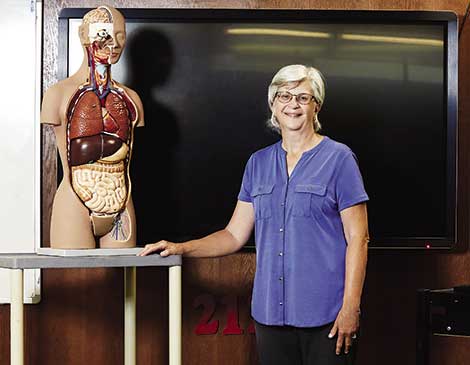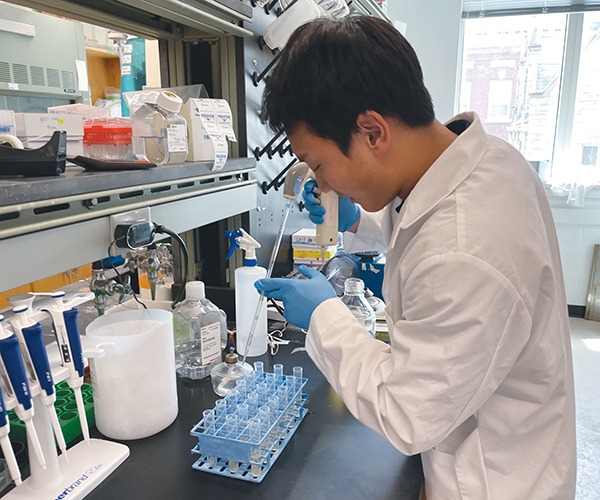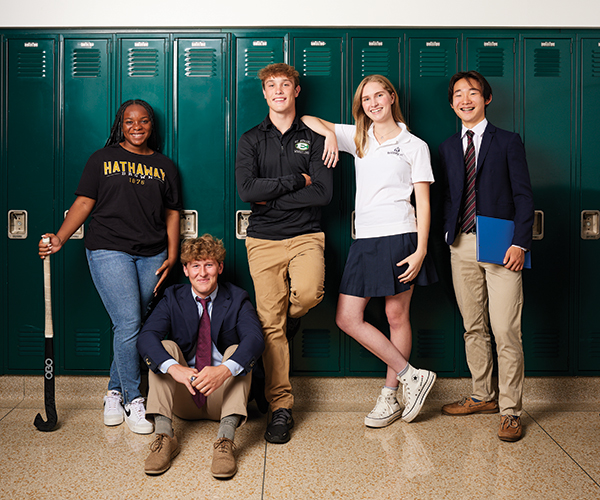Science is a constant across Christine Ronzi’s two careers. The 60-year-old science department chair at Lake Catholic High School worked 13 years at the Cleveland Clinic before earning her teaching specialization in biology and life sciences and joining the Mentor school’s staff in 2001. Her hands-on experience so informed her teaching that she sought a way to similarly connect students’ education with real-life scenarios. Nearly two decades later, she’s pioneered innovative learning practices for her department such as in-class suturing demonstrations, using impressionist painting to study human body tissues, debating theology and evolution, and even sitting in on surgeries using virtual reality headsets.
A lot of my students go into nursing, so I tell them of the impact just a five-minute conversation can have in reassuring a patient who is feeling scared. They can't lose sight that patients are not just some body in a bed. You have to have compassion.
We're trying to instruct students to see where real-life experience comes in, instead of just book knowledge. How are you going to apply it to your life? That’s the direction education is moving.
Working in a private school has given me a lot of creative freedom. I have family members who are teachers in Texas, [who] are given lesson plans by the state. I couldn’t teach like that.
I'm many students' first demanding teacher. But with our class sizes, I have the opportunity to talk with them and set up a game plan for success. All of a sudden those C’s become B’s. But how I really measure success is a real quiet student who by the end of the year is raising their hand, and when I call on them, they have the confidence to speak because, “Mrs. Ronzi said no one will ever make fun of anything I say. I feel good sharing my ideas.” To me, that’s more important than learning.
Don't be afraid to fail in front of your students. It’s OK that I don’t know the answer. It’s OK for the kids to see that.
The other thing i tell new teachers is to be a lifelong learner. Never quit learning no matter how old you get. Because that’s what keeps you, I think in any profession, dynamic and not stagnant.
I draw on my life experiences all the time.
I'll get notes from some of my students of what a difference that I made in their lives. If I’m having a bad day, I pull out a couple of the notes and that gets me back on track.
So many of my former students were on the front lines of the medical field helping patients get through this pandemic. To know I’ve played just a small role in helping guide them into their field and find their passion, that’s what makes teaching so rewarding.




